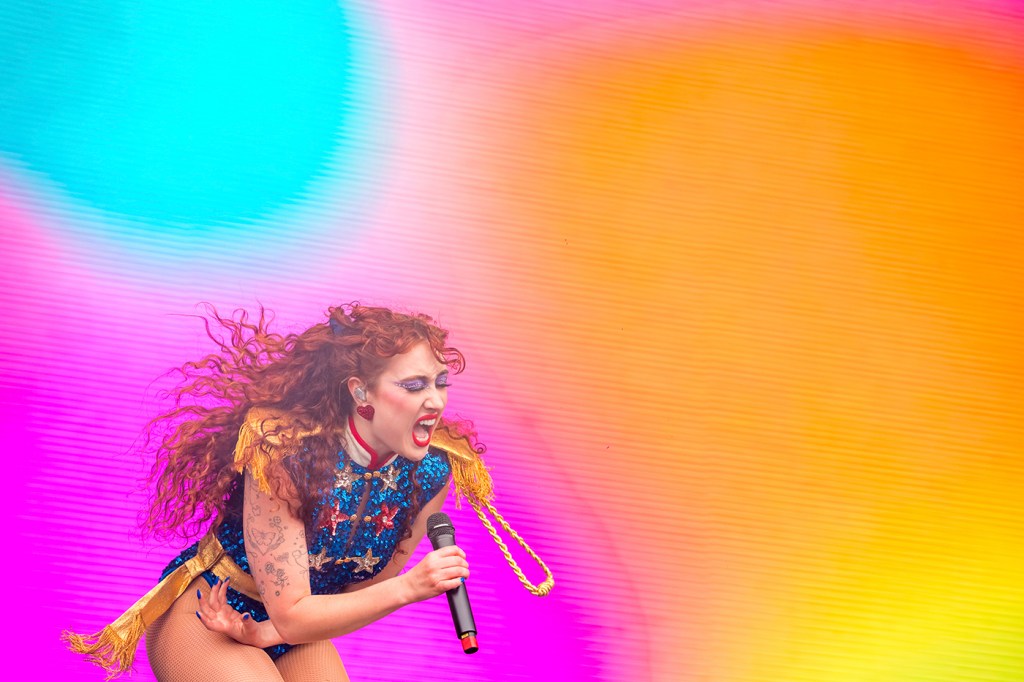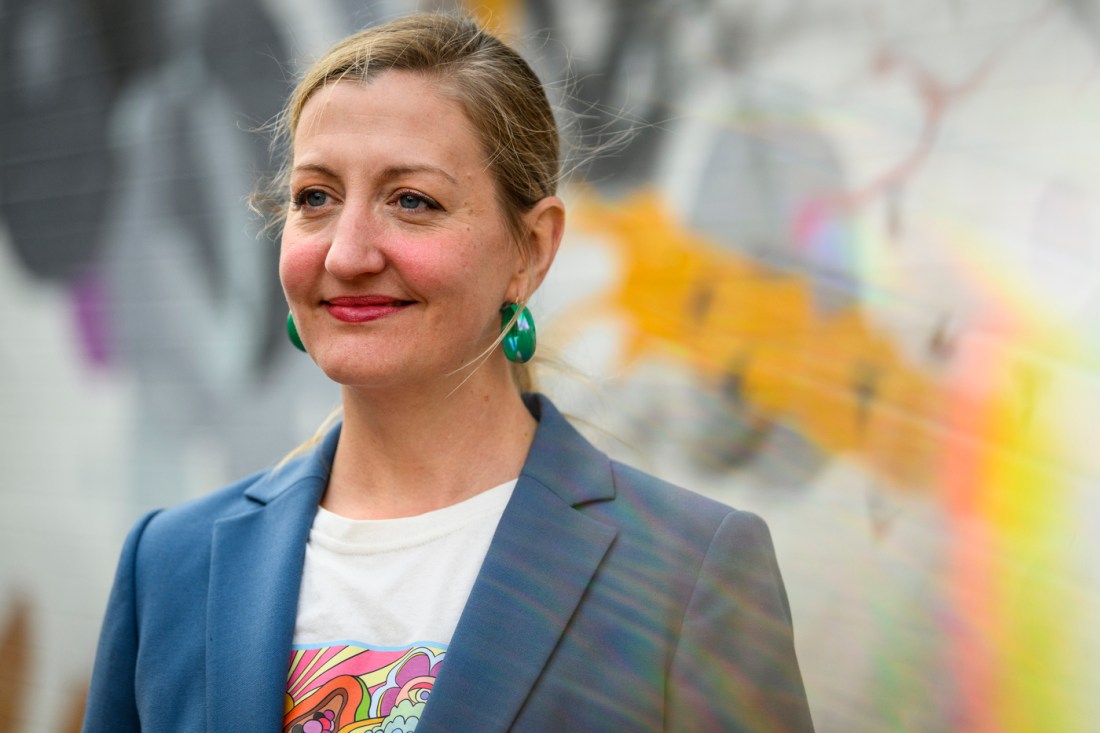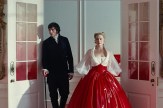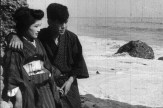The rise of Chappell Roan: How this Midwest princess and overnight music icon became the voice of the LGBTQ community
Chappell Roan rose to fame with catchy songs and theatricality. But for the LGBTQ community, her music and the new model of queer stardom she embodies is “a matter of survival,” says a Northeastern music expert.

Normally, a new album from Taylor Swift, let alone Beyoncé, would be the biggest story in pop music. But 2024 belongs to a different pop star: a 26-year-old Midwest princess.
Chappell Roan’s meteoric rise has made her into not only the star of the summer, but the star of 2024.
Built on infectious hits like “Good Luck, Babe!,” “Hot to Go!” and “Femininomenon,” social media virality and her theatrical live performances, Roan went from opening for pop stars like Olivia Rodrigo to playing in front of record-breaking crowds at the biggest music festivals in the country, all within the span of a few months.
But why is Chappell Roan the breakout star of 2024? What is the secret to her mass appeal and why is she such a big deal for the music industry?
Rebekah Moore, an assistant professor of music at Northeastern University, says Roan’s rise to fame, which is “the ideal music industry formula for success,” comes down to talent, luck, social media, the peculiarity of the modern music industry –– and politics.
Moore says Roan’s path to stardom was a years-in-the-making overnight success. As an artist, Roan, whose real name is Kayleigh Rose Amstutz, has been honing her craft since she was a teenager. She signed with Atlantic Records when she was only 17 –– and was subsequently dropped from the record label. But over the subsequent years she took the time to find her sound, her voice and her identity as a person and an artist.
“She did figure out who she was when she wrote ‘Pink Pony Club’ [in 2020] and then she’s had these years to cultivate the complete persona, or multiple personas, during that time,” Moore says.

All of that time, talent and effort is evident in her 2023 debut album, “The Rise and Fall of a Midwest Princess,” the very same album that all of her 2024 hit songs came from –– just a year later. Along with producer Daniel Nigro, who worked on the album, Roan created a sound that combines ’80s synth pop, 2000s pop nostalgia and Roan’s theatricality, humor and identity as a lesbian from rural Missouri. She honed her songwriting ability, creating hyper-catchy songs with earworm melodies and heartfelt, authentic, joyful, funny lyrics, Moore says.
Why, then, did it take almost a year for people to find her album?
The fact that it peaked at No. 2 on the U.S. Billboard 200 charts and became a constant on summer playlists for millions in 2024 speaks to “the ways that algorithms, social media engagement, the way that people are using so many different media to discover new music are making it more complicated” to predict what success looks like, Moore says.
In some ways, it also highlights an unfortunate constant in the music industry too.
“I kind of feel like this is a tale as old as time with the music industry of underestimating women performers, underestimating queer consumers and just being behind,” Moore says. “We’re always behind the curve. As much as we think we can predict the next success, we’re just never there.”
Featured Posts
While Roan clearly has general appeal, Moore says it’s impossible to talk about the artist’s skyrocketing path to success without mentioning the LGBTQ fans who latched on to her early and passionately. For as popular as she is, Moore says Roan has refused to dilute who she is. That means embracing and highlighting her sexuality and her rural, heartland roots in her lyrics, sound and performances.
“I really appreciate the theatricality and commitment to building an experience in her live performance –– it’s just unmatched –– but there’s something interestingly authentic about this amalgamation of drag and burlesque and musical theater and country bumpkin that she’s managed to pull off,” Moore says.
Roan is unafraid to be political, but Moore says it goes beyond traditional activism and cuts to the heart of what Roan is doing as a queer artist who has reached mainstream appeal.
“That is helping a lot of us to awaken to what we’ve been missing in pop music because we’ve been lulled into accepting that belongingness comes from subtle hints about queerness or flat-out queerbaiting,” Moore says. “All of a sudden we’re realizing, no, we want more from a queer pop star. We want this unapologetically queer person, but it’s also a person who is pushing the limits within queer community.”
Moore says Roan presents a new model of what it means to be a queer star that is desperately needed, especially for young people.
“Had she been around when I was a teenager, I would have come out as a teenager,” Moore says. “Instead, it took me until my early 30s to come out because I didn’t have the models.”
Having an artist like Roan topping the charts, headlining concerts and playing on the main stage at Lollapalooza is vital for increasing queer visibility, Moore adds, which is even more vital in rural America. Roan, who was born in Willard, Missouri, and lived in a trailer park with her parents and three younger siblings, embodies the fact that LGBTQ people exist outside urban centers and the American coasts.
“Those are kids who are afraid to come out,” says Moore, who grew up in a North Carolina town with a population of under 200. “They’re scared they’ll be tormented and tortured, killed, and she reminds them quite explicitly –– reminds all of us –– that they’re there, that there are drags in these towns.”
In that way, Roan’s success is about being more than just the breakout star of 2024.
“[She is] political in a climate where there are 527 anti-LGBTQ bills in the U.S. currently,” Moore says. “Forty of those bills alone are proposed in her home state of Missouri, and most of them explicitly target young people. … These are kids who really need to hear people like her. It’s a matter of survival.”











